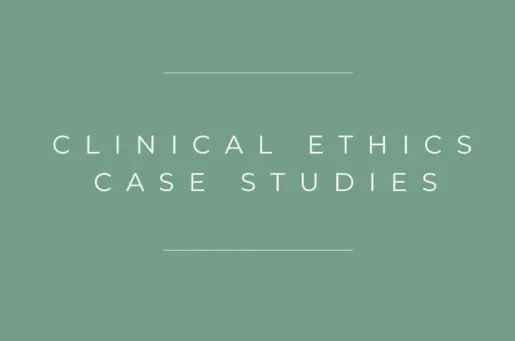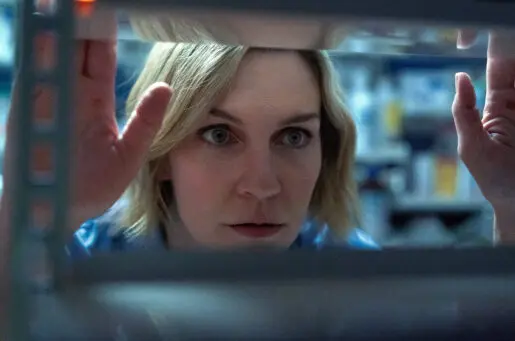Bioethics Forum Essay
Choosing What to Believe in the Face of Illness
Maggie is a 25-year-old woman with a mutation in a gene that is essential for clearing toxic products of protein breakdown—chiefly ammonia. The condition is called ornithine transcarbamylase (OTC) deficiency. She was diagnosed at 22, after more than a decade of unexplained, seemingly sporadic illness.
The signs had been there all along. Maggie, to her parents’ frustration, was a picky eater —she hated meat. Her parents, enthusiastic carnivores, interpreted her aversion as stubbornness. They believed it was a matter of choice. What they couldn’t have imagined was that this aversion was not simply a matter of conscious preference or willpower, but rather a protective, physiologically driven response to the risk of dangerously high ammonia caused by Maggie’s disorder. Meat and other sources of protein could cause her ammonia level to spike.
As a fourth-year medical student interested in clinical genetics, I’ve seen how genetic diagnoses shape not only individual identity but also perceptions of agency and responsibility. Few philosophical questions carry as much emotional and clinical weight as the question of free will—particularly in the field of clinical genetics, where patients and families are often forced to confront the extent of their control over health outcomes. Genetic diagnoses can challenge long-held assumptions about agency and responsibility, prompting reflection on whether behaviors and outcomes are freely chosen or biologically predetermined.
In this context, individuals often find themselves navigating the control–fate continuum, with some seeking to assert agency and control over their futures, while others adopt more fatalistic perspectives. These different orientations shape how people interpret genetic information, make decisions, and adapt to illness.
Philosophical frameworks like the control–fate continuum offer more than academic insight; they help explain how patients and families process the moral and emotional implications of genetic knowledge. In clinical settings, these frameworks shape how providers assign responsibility, offer support, and approach ethically complex decisions. Nowhere is this more apparent than in the care of patients with an inherited or chronic illness, in which beliefs about agency and determinism can profoundly influence how we counsel, how we judge, and how we care.
Clinicians are often called upon to address patients’ unspoken questions about control and fate. Many draw on clinical experience, emotional cues, and contextual judgment to frame conversations—subtly shifting between narratives of free will and determinism to meet patients where they are.
Maggie’s identity cannot be reduced to her diagnosis, but it would be misleading to ignore how her condition shaped her behavior and preferences, and how others saw her. At 16, she began drinking socially. After nights out, she would return home sick—sometimes for days—with nausea, confusion, even signs of encephalopathy. Her parents assumed she had overindulged and scolded her for lacking self-control. When she insisted that she had drunk very little, they didn’t believe her. Why didn’t she know her limits?
They couldn’t have known that even minor disruptions in someone with OTC deficiency—a mild infection, a couple of drinks, too much protein—could lead to toxic levels of ammonia.
It’s hard to fault Maggie’s parents. They used a widely accepted—and not unreasonable—assumption: that people have agency over their choices and are therefore responsible for their actions. But Maggie wasn’t entirely free to make the choices she had made.
In this context, while disclosing the diagnosis, the genetics team decided to emphasize a lens of genetic determinism. They explained to Maggie and her family how much of her behavior was likely influenced by her OTC deficiency, not by her choice. By doing so, they helped relieve unwarranted guilt for both Maggie and her family.
Here, a degree of skepticism about free will seemed not only reasonable but deeply compassionate.
The day after Maggie’s diagnosis, the genetics team returned to further counsel the family, ready to address their lingering questions: How will this condition affect Maggie’s life? What symptoms might develop? What is likely to cause them?
In moments like these, patients and families often begin to see disease progression as an unavoidable fate. But I’ve heard physician-geneticists respond that, despite statistical projections, each patient “writes their own story.” With Maggie, this was precisely what happened. Fears of an unchangeable fate were eased by the team’s emphasis on Maggie’s ability to influence her own fate. They emphasized, now, the power of her own choices —diligent adherence to her new diet, seeking care proactively, getting enough rest, managing stress, and not fasting.
How strange — just one day after diagnosis, the team’s framing shifted completely away from the previous day’s emphasis on fate to a focus on choice. Instead of using determinism to reduce blame, the team now embraced language of choice and possibility to inspire hope.
Now, three years later, Maggie continues to face challenges with making the social and dietary restrictions required by her OTC deficiency. Maggie enjoys spending time with her friends, but the social settings often make it difficult to adhere to her dietary restrictions. Sometimes she slips up and eats something she shouldn’t. And like any young person in her 20’s, whose peers frequently gather for nightlife and drinking, she hates to feel left out and will occasionally join them. Sometimes she drinks more than she should. Consequently, she has been hospitalized 10 times over three years for hyperammonemia crises—mostly triggered by lapses in her protein-restricted diet, skipping meals, stress, or alcohol consumption
Maggie’s loved ones have grown frustrated with her seemingly consistent lack of discipline to control her disease. Some members of the inpatient team are also fatigued. Quietly, they wonder, “Why do we work so hard to help someone who doesn’t seem to want to help themselves?”
But they stop those thoughts. They remind themselves that while Maggie is technically the arbiter of her choices, she is under immense stress and faces severe lifestyle constraints. Her decisions are made within a complex genetic, psychological, and socio-cultural environment.
They draw on their training in the social determinants of health—considering constraints on Maggie’s access to appropriate foods and her ability to manage stress, as well as the emotional toll of chronic illness. They enter her room with patience and curiosity, seeking to understand what might be driving her latest crisis.
Once again, the clinical lens shifts—this time back toward determinism, shaped by social and emotional influences driving her health outcomes and away from the earlier emphasis on agency and self-direction.
This case illustrates three phases of Maggie’s journey with OTC deficiency, each navigated by her care team using a different conceptual framework—first determinism, then agency, and then determinism again.
This story raises a central ethical question: Is it permissible—even advisable—for healthcare providers to shift along the control–fate continuum, emphasizing agency in some moments and biological determinism in others? Does such flexibility reflect ethical inconsistency, or is it an expression of compassion and narrative sensitivity? Should our priority be consistency in philosophical principle, or responsiveness to patients’ emotional and psychological needs?
Maggie’s case suggests that the critical task in medicine is not rigid consistency but discernment: knowing when to invoke agency and when to lean into determinism in ways that support the patient’s evolving understanding of their condition. Questions of control and fate—with their attendant emotional dimensions—are relevant to nearly all patients. Clinicians should therefore cultivate conscientiousness in how they apply these interpretive frameworks during patient care.
This is not to suggest that truth is malleable, but that how truths are communicated—and when—matters deeply in medicine. Structured guidance from medical societies and bioethicists—such as communication frameworks or decision-making aids—could help clinicians navigate emotionally and ethically complex conversations more intentionally. But operational frameworks, no matter how sophisticated, cannot replace the need for clinical judgment and for clinicians to be emotionally attuned to their patients and to themselves.
We can’t always change the course of a disease, but we can change the way a story is told—and that, in turn, can change how a patient lives within it. In Maggie’s case, shifting between fate and control perhaps wasn’t a contradiction, but an act of care. The clinical team adjusted its lens as needed—not to manipulate the truth, but to make space for Maggie to inhabit her future with courage rather than fear.
Perhaps what we owe patients most is not a fixed narrative, but the freedom to find meaning in one that evolves with them. In doing so, we offer not just explanation, but accompaniment—not just information, but hope—and in some cases, even healing.
David Curtis is a third-year medical student at Baylor College of Medicine.














What a nuanced, compassionate, and insightful piece. The points raised, while particularly salient in the context of clinical genetics, could readily apply in other areas of medicine where questions of control and free will are prominent—psychiatric disorders and weight-management/obesity are two examples that come to mind, both of which can carry quite a bit of stigma (depending on which narrative tactics are used). I agree with the author that it is critical for clinicians to understand the power of narrative on patient self-identity and subsequent behaviour; knowing when and how to leverage the “control-fate” continuum is a vital skill. Thank you for sharing this piece; I enjoyed it tremendously!
I agree with Faith Wershba completely. This was eloquently and convincingly crafted and gives us much to think about in our communication(s) with patients, family, and friends. I will share this widely…
Maggie is lucky to have a compassionate team that is attuned to “What Matter Most to this Person”. Always challenging to fulfill obligations to provide a high standard of clinical care when the patient is “non-compliant with diet, meds etc”. If a patient is non-compliant with the plan, then whose plan is it? It may be the medical teams well intentioned plan, but it is not really addressing the goals and values of the patient. No stigma when occasional lapses in medical compliance occur!!
From the moment we are in the womb, we experience pressures from society, sometimes subtle, sometimes direct. Parents, relatives, and friends often project expectations onto a baby before it is even born: Will the baby sleep through the night? Will they grow up without a father? What does that mean for their future? These are not questions asked with bad intentions, yet they reflect the constant undercurrent of judgment and expectation that shapes human life from the very beginning.
For someone like Maggie, diagnosed at 22 with Ornithine Transcarbamylase (OTC) deficiency, those pressures multiply. Not only does she face the biological fate of a rare genetic disorder, but she also lives with the social and cultural expectations of being a young woman in her twenties. Her peers can enjoy carefree nights out, indulgent meals, and spontaneous living, while Maggie must constantly monitor her protein intake, avoid alcohol, and live with the looming threat of hospitalization. The weight of chronic illness is not only physical, but also social and emotional.
What Maggie’s case illustrates most clearly is the extraordinary importance of how medical teams frame illness and Responsibility. The genetics team demonstrated a deep understanding of narrative shifting, sometimes emphasizing biological determinism to alleviate guilt, and sometimes emphasizing personal agency to inspire hope. These shifts were not contradictions, but acts of compassion, recognizing that human beings do not process illness through science alone, but also through story, meaning, and emotion.
Maggie’s relapses or hospitalizations after slipping up with diet or alcohol should never be interpreted simply as moments of “bad behavior” or “lack of discipline.” Instead, they reflect the enormous toll that chronic illness places on someone who is also trying to live a whole life in a society that does not stop for her genetic condition. Living with a disease that can send her into crisis from ordinary activities is not just a matter of self-control; it is a daily negotiation between survival and the very human desire for normalcy, belonging, and joy.
What does “responsibility” mean when biology, psychology, and social life all pull in different directions? When we call someone “responsible,” we usually assume they are entirely in control of their choices. However, blaming Maggie would not only be unfair, it would miss the truth of her reality. Her biology, psychology (the strain of living with a chronic illness while yearning to feel normal), and her social environment (the cultural pressures of youth, food, and drinking) all intersect to shape her actions. Responsibility, in her case, cannot be reduced to simple control; it emerges in the delicate tension between determinism and agency. Determinism reminds us that many of Maggie’s so-called “choices” are shaped by forces outside her will, while agency reminds us that she still carries moments of power, however fragile, to influence her path. This tension is not a contradiction but a deeply human truth, one that calls for compassion rather than judgment.
The ethical challenge is not to rigidly choose one lens, but to recognize that Responsibility in chronic illness is shared, fluid, and deeply contextually shaped as much by fate as by choice.